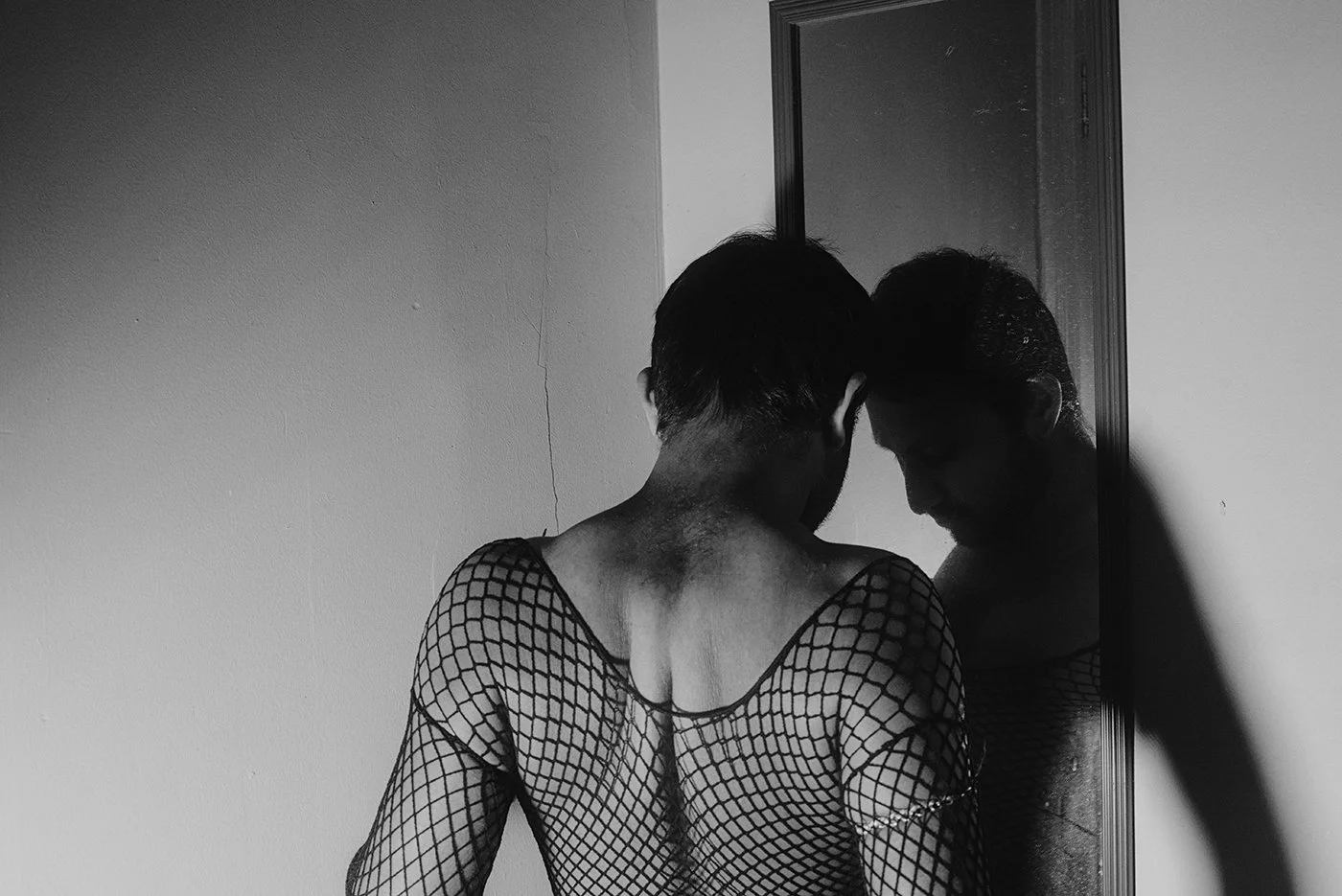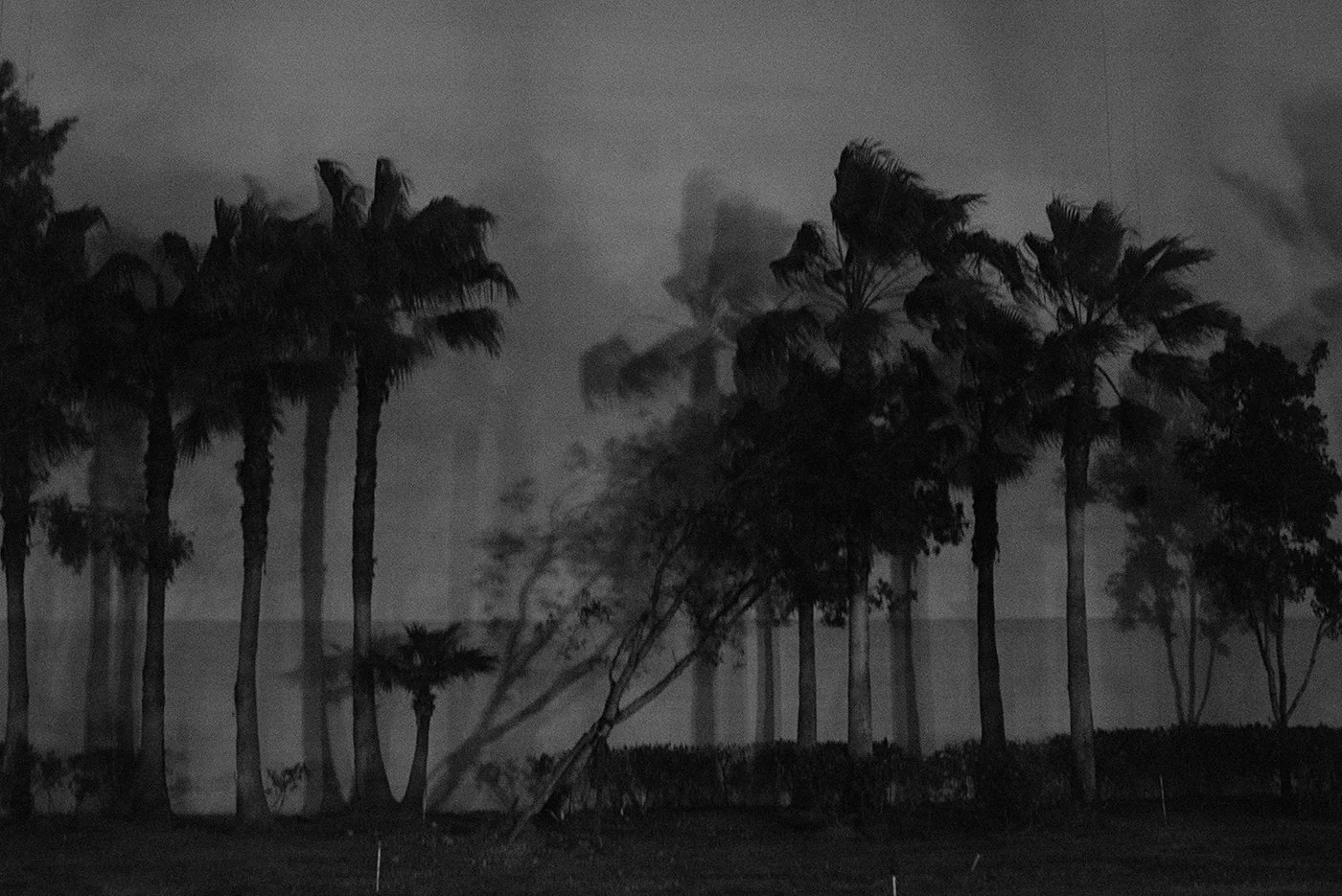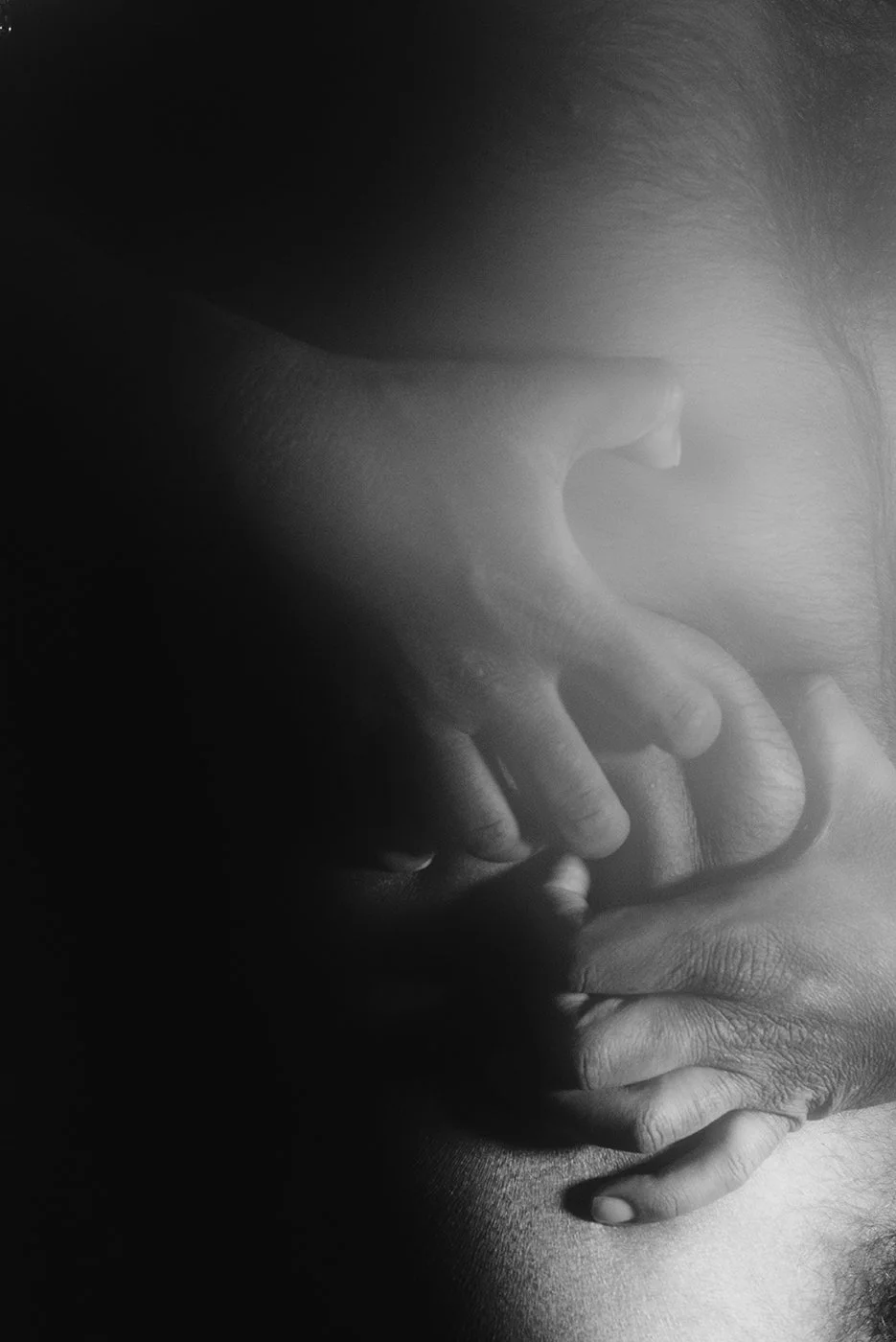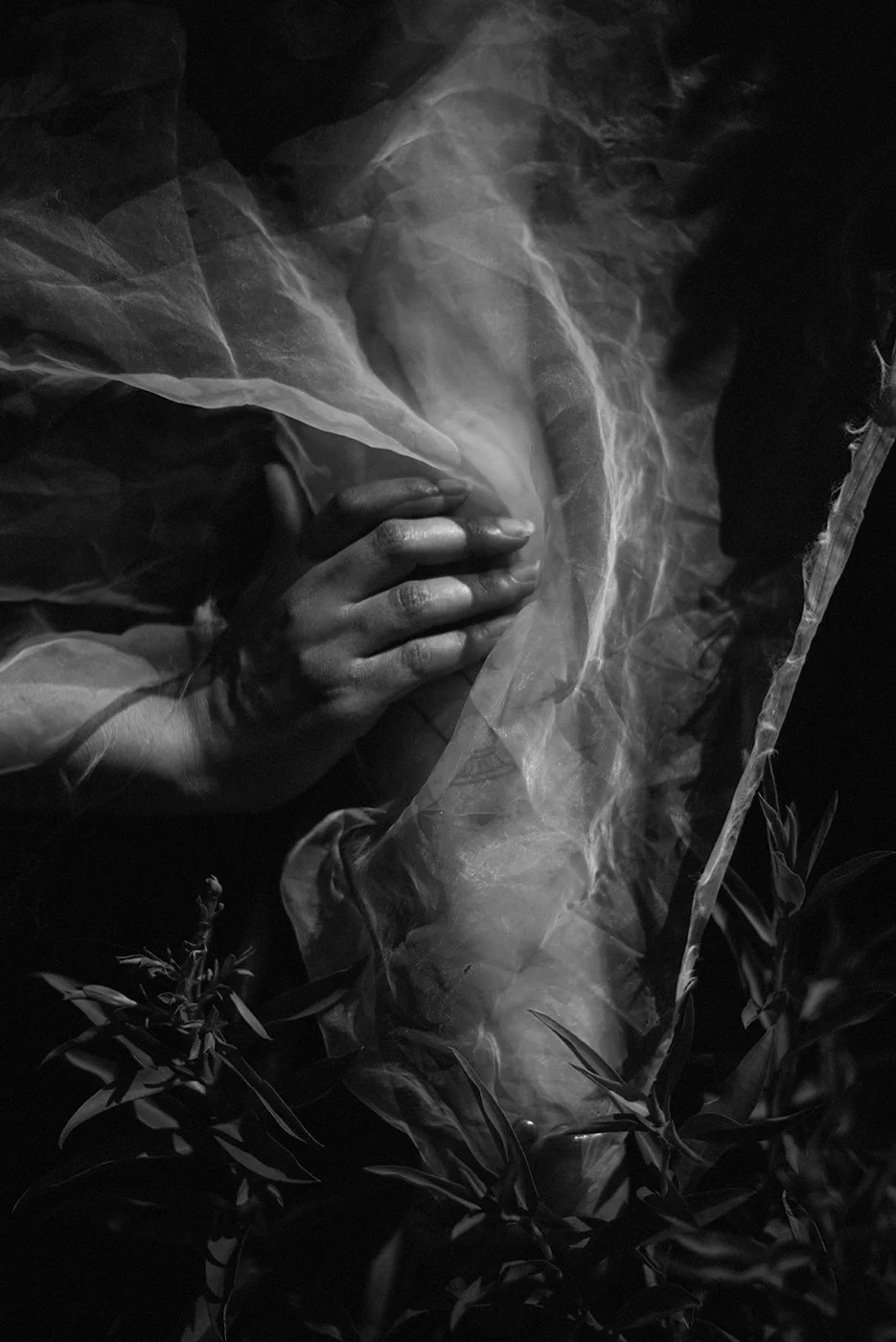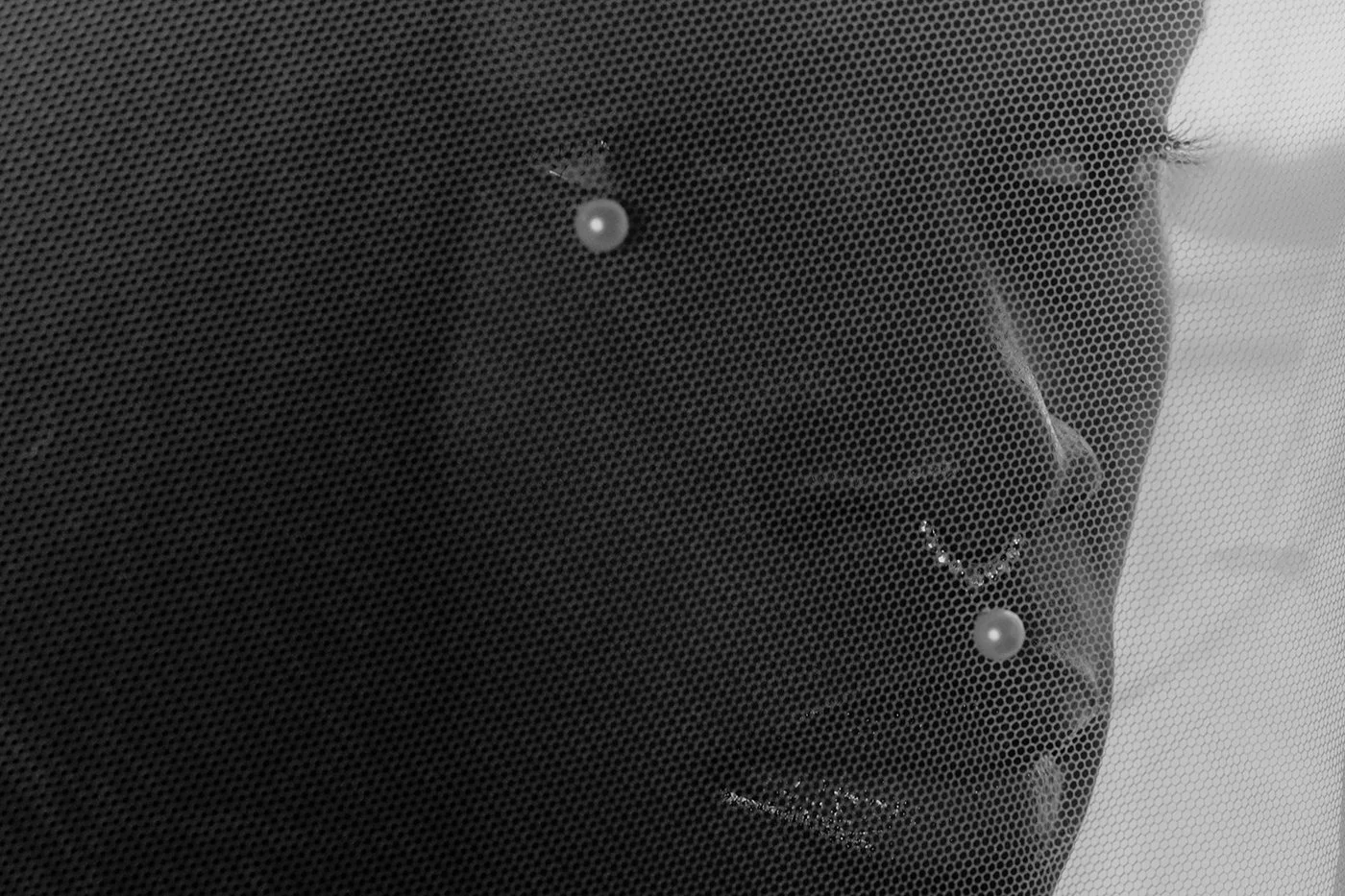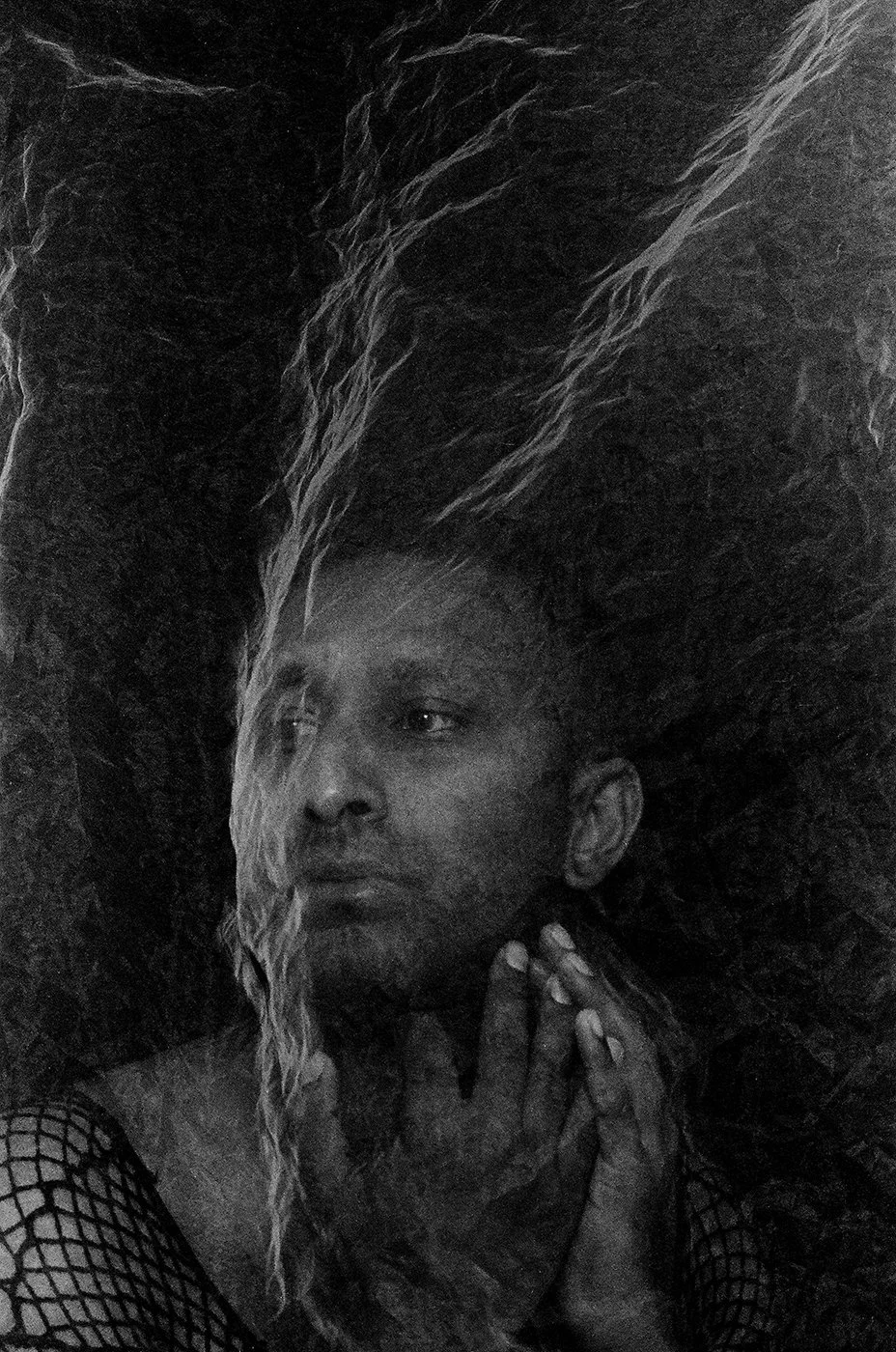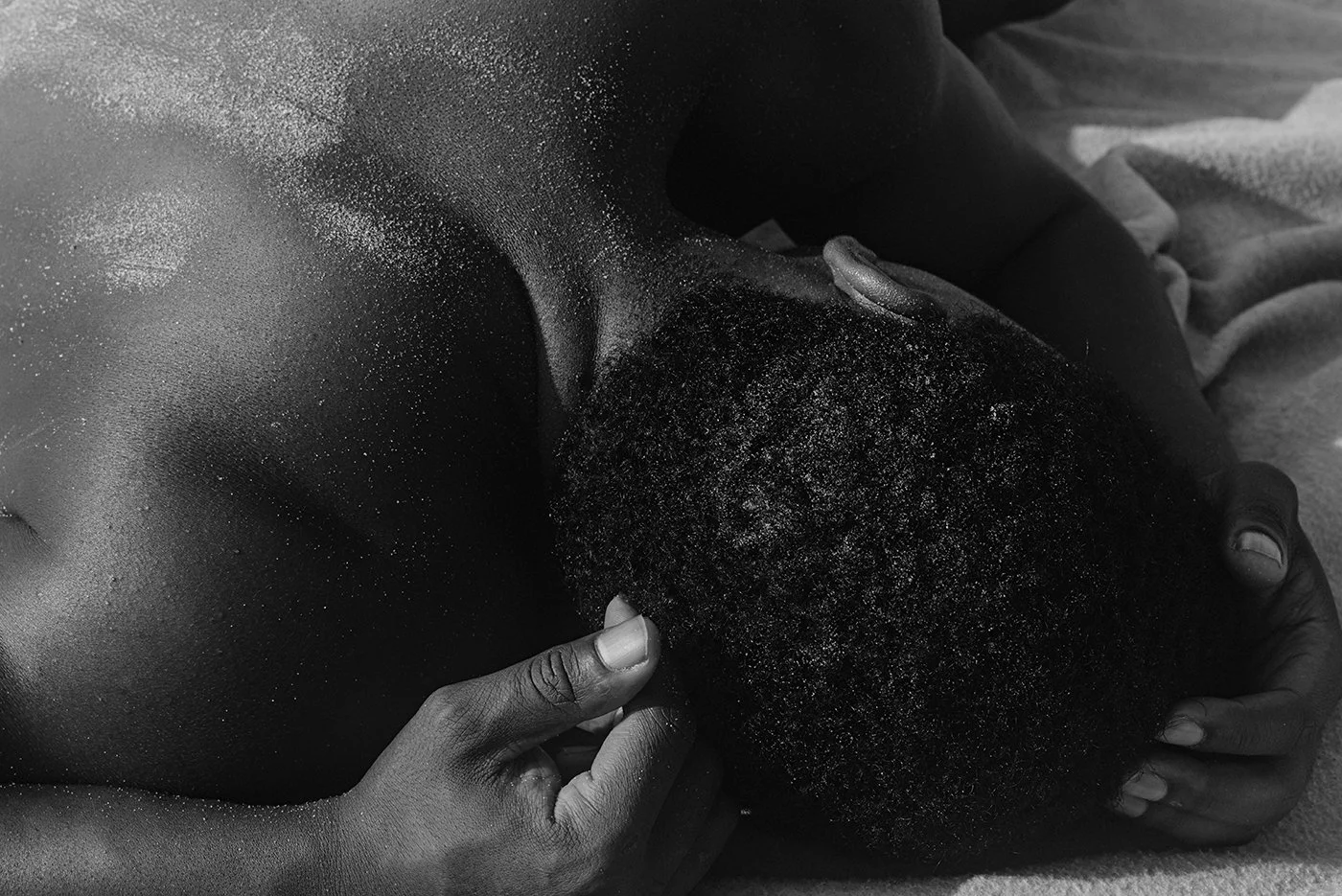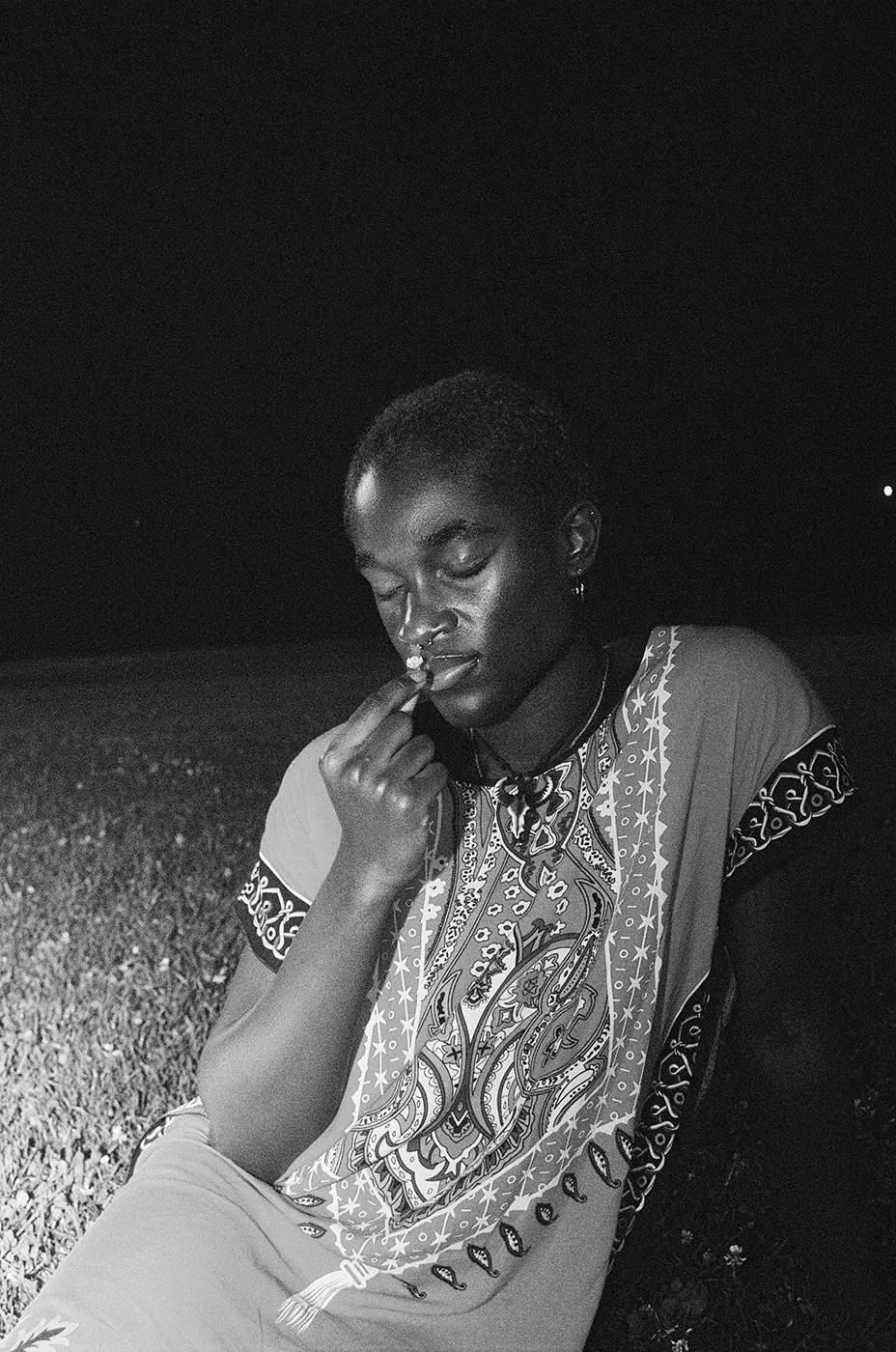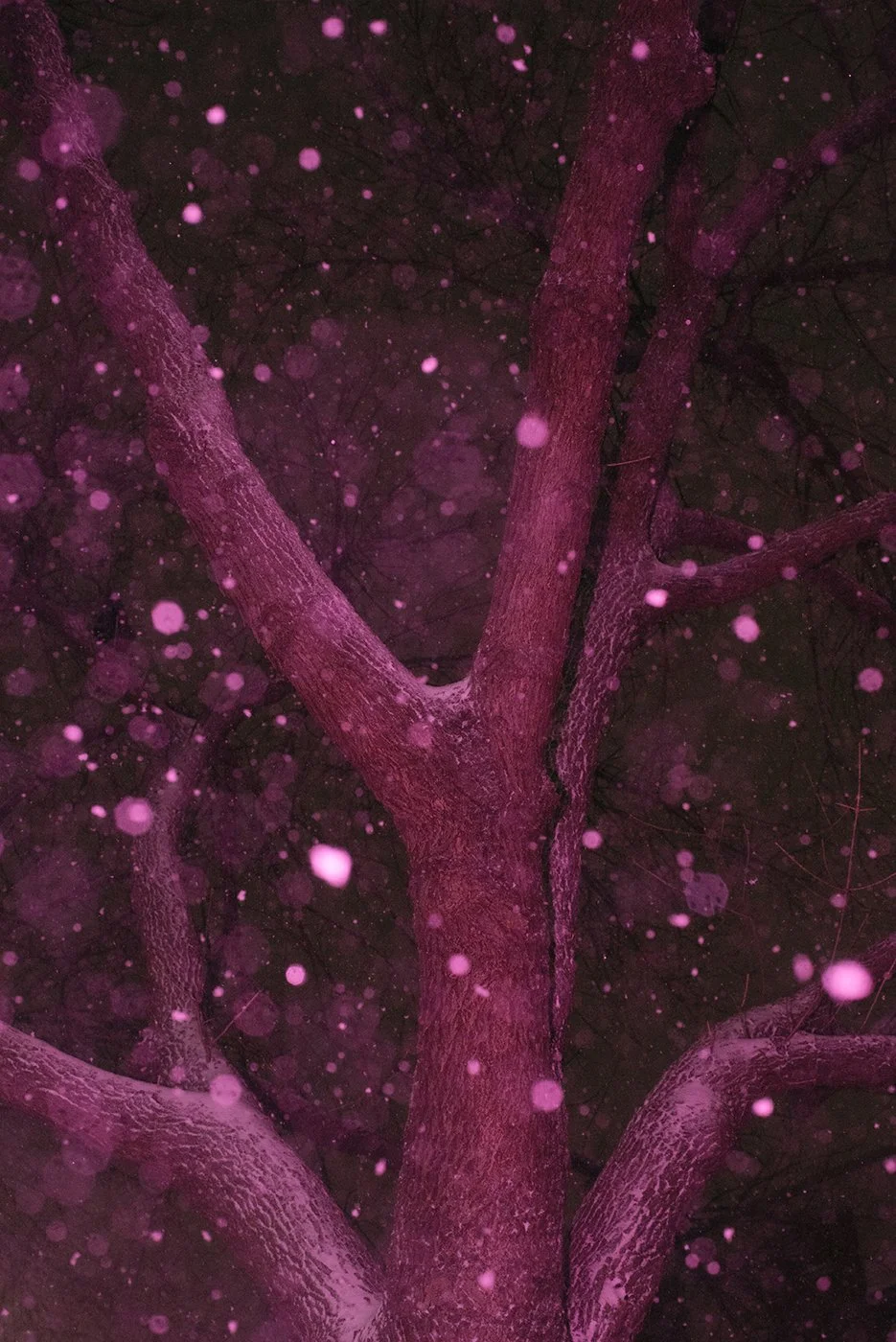PERSONAL AWARD
RECIPIENT • Debmalya Ray Choudhuri - A Factless Autobiography
JUROR • Pauline Vermare – Brooklyn Museum
-
A Factless Autobiography is inspired by a chapter of the same name in the Book of Disquiet by the Portuguese poet Fernando Pessoa. It is an intimate and personal exploration of loss, desire, and the fragile nature of our existence. I started this project in response to the death of a lover and my confrontation with tuberculosis as a young adult. It grapples with the complex and often conflicting emotions of grief, melancholia, and survival while also questioning the nature of gender, identity, and the human condition. This work is a fragmented narrative of lived experience, longing, and healing.
A Factless Autobiography marks the first chapter of an ongoing trilogy that I have been working on for seven years, spanning my time in the U.S., This series primarily focuses on the journeys of three protagonists: a trans woman from Côte d'Ivoire, an immigrant in America and recovering addict whom I met in my early years in the U.S.; a Black gay American man, a survivor of abuse, and myself. Our personal and collective histories and struggles offer a window into the often-overlooked complexities of identity in a fractured society. Through this work, I try to explore the challenges of being a queer South Asian immigrant in the socially and politically fragmented landscape of America, where queer and trans lives are increasingly at risk while also attempting to raise awareness of the power of solidarity and community.
Central to my process is cultivating meaningful connections with those I meet. Through sustained conversations and the development of friendships with strangers—many of whom are survivors of trauma—I aim to create a healing space in which they can express their pain and their hopes for transformation. By invoking a sense of anonymity and ambiguity, I honor the subject’s presence as both a collaborator and a performer in the work, allowing for a layered narrative. Through these intimate and intense encounters, I seek to expand the often-neglected conversations surrounding taboo issues, such as mental health, suicide, trauma related to trans and queer experiences, and human feelings of desire and longing.
Through a collaborative choreography, in which dreams sometimes color reality, I ultimately raise the question of self-affirmation.
-
I was deeply moved by Deb Choudhuri’s A Factless Autobiography. I was impressed with the quality of the work, both as individual images and as a series, and by the artist’s ability to take us into a world of their own. I was also taken by the depth and sincerity of the work. These intimate portraits and self-portrait are a masterful exploration of memory, identity, and grief. They exemplify the crucial role that photography and storytelling play in time of loss. Choudhuri’s masterful and poignant exploration of the self through words and portraiture is imbued with existential philosophy. This series blurs the line between diaristic truth and fantasy, inviting us into a profoundly resonant narrative. Choudhuri’s visual journey on love and death, on love with death, resonates with George Bataille’s Les Larmes d’Eros. This “autobiography” tells, in fact, many people’s stories – stories that are not as often seen or heard. Each portrait feels like a shared confession. Choudhuri’s talent is to bring us into these fragments of existence and to make us think deeply about what it means to survive trauma – and what it means to be alive. This series is a testament to the creative and cathartic power of photography.
Two other series made a strong impression on me: Rachel Nixon, The Garden of Maggie Victoria, and Stephan Jahanshahi, Nation of Desire. I was drawn to Rachel Nixon’s poetic and melancholy Garden of Maggie Victoria. The way Nixon used the family archive to tell her great-grandmother’s forgotten story in a contemporary way was very thoughtful and compelling. And I was moved by her intention with this series: “To render Maggie Victoria visible, and a call to women to take up space.”
I thought that Stephan Jahanshahi, Nation of Desire was impressive in many a way – technically, artistically, as well as spiritually. I loved the cinematic nature of this series. It is a visually striking tale of exile, filiation and belonging, narrated in a remarkable way. I found the symbols-filled still-lives to be particularly striking and beautiful; and admired the strong presence of Jahanshahi’s sitters. All in all, these three series felt particularly important and singular. They moved me and engaged me in a deep and powerful way.
– Pauline Vermare • Phillip and Edith Leonian Curator of Photography, Brooklyn Museum
-
Photography: Digital and Film; Print sizes can vary from 8×11 inches to larger 3ft x 2ft canvas print based on the curatorial and exhibition team.
About the Artist
Debmalya Ray Choudhuri (b. 1991, Kolkata) (he/they) is a self-taught photographer from India based in New York.
Rooted in diaristic practice, their work spans photography, performance, and text. Debmalya explores personal trauma and mental health while addressing broader societal questions around the queerness of identity, body, and space.
After the tragic loss of a lover to suicide, their art became a way to process grief and confront the stigma around suicide, addiction, and mental illness. What began as an escape from chaos evolved into a search for intimacy—connecting deeply, both physically and emotionally, with people and spaces to capture moments that feel raw, tender, and honest. This became a foundation for questioning the human condition.
Their work explores how people express desire and love, using encounters with friends and strangers to reflect on what it means to be queer in today’s complex sociopolitical world. Centered on care, community, and collaboration, their storytelling challenges assumptions about identity, representation, and image-making, especially within the blind spots of post-colonial capitalism. The boundaries between subject and photographer remain fluid, opening space for dual perspectives and deeper connections between self and other.
rayd.space


